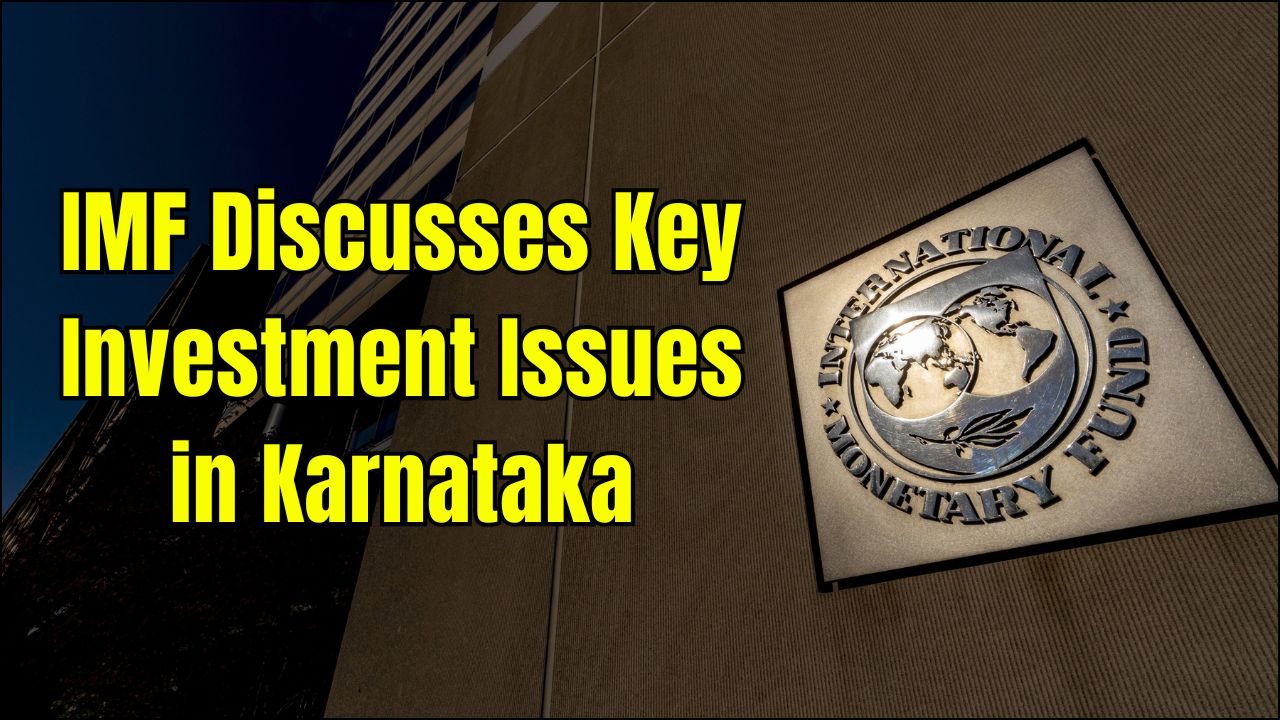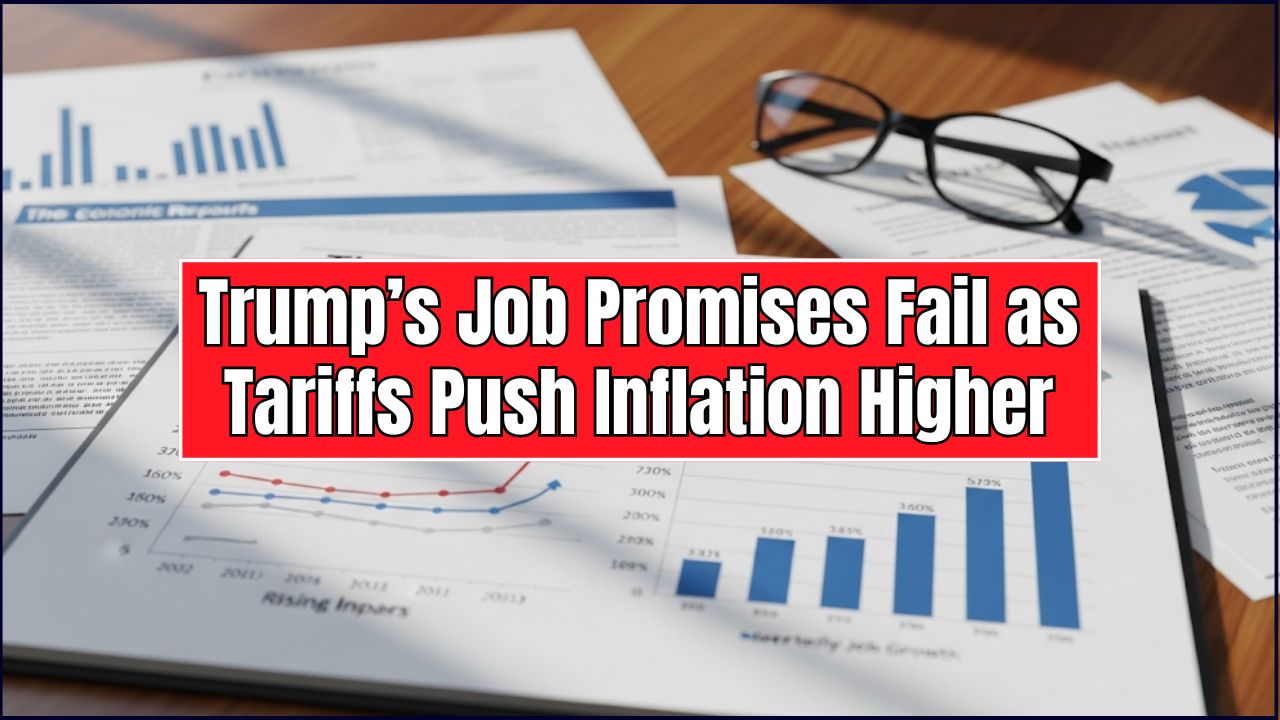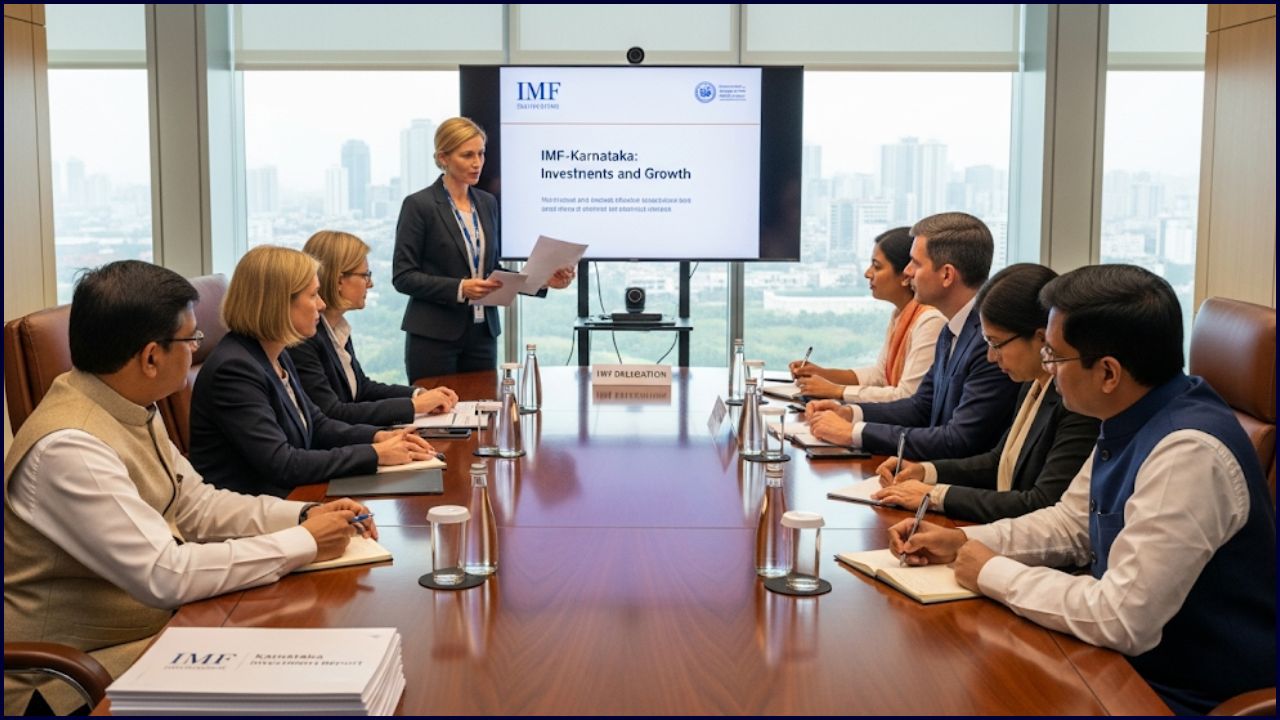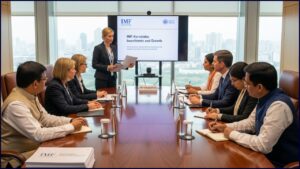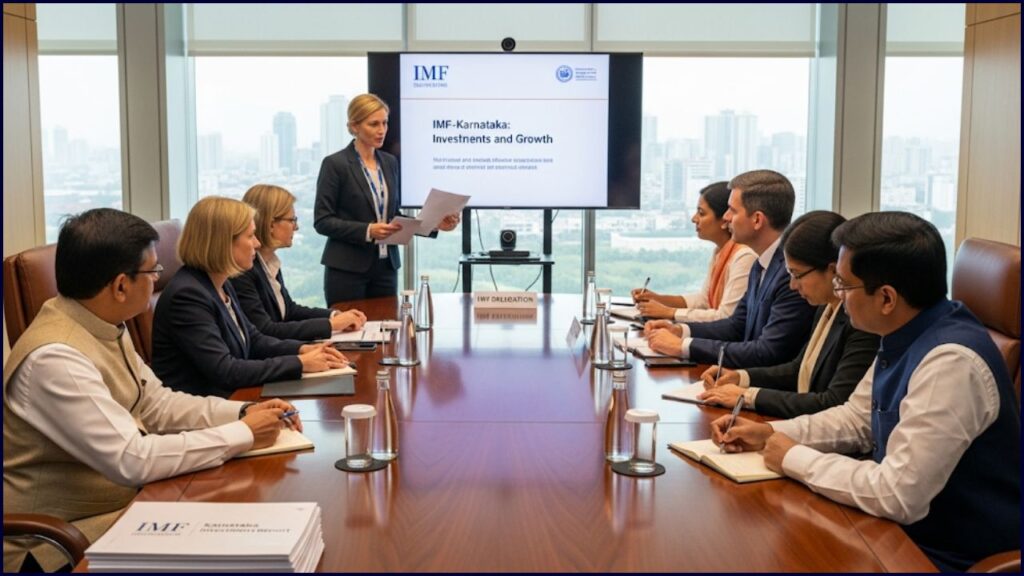
Bengaluru, September 2025 — The International Monetary Fund (IMF) held detailed discussions with senior officials of the Karnataka government this week, focusing on investment opportunities, fiscal management, and long-term growth. The talks, part of the IMF’s annual Article IV consultations, signal growing international attention on the southern Indian state’s economic trajectory.
IMF Article IV Consultations and Karnataka’s Role
The IMF delegation, visiting from Washington, met with Chief Secretary Shalini Rajneesh and Additional Chief Secretary Uma Mahadevan in Bengaluru. According to government officials, the agenda included investment climate improvement, fiscal sustainability, and structural reforms to strengthen economic resilience.
The consultations form part of the IMF’s Article IV review, a mandatory process under which the Fund engages with member countries to assess economic conditions and provide policy advice. While typically focused on national economies, the IMF has increasingly shown interest in subnational units with significant economic weight, such as Karnataka.
Key Areas of Discussion
Investment Climate
Karnataka is widely recognized as India’s technology hub, with Bengaluru often referred to as the country’s “Silicon Valley.” The IMF delegation underscored the importance of maintaining policies that encourage foreign and domestic investment in both high-tech industries and traditional sectors.
Fiscal Sustainability
Discussions also covered Karnataka’s fiscal position, with emphasis on debt management and responsible public expenditure. The IMF has consistently advised Indian states to balance development priorities with fiscal discipline to avoid long-term imbalances.
Human Capital and Climate Strategies
The delegation highlighted the need for policies that strengthen human capital, particularly through education and skills training, as well as climate resilience strategies. These priorities align with the IMF’s broader recommendations for sustainable development across emerging economies.
Expert and Official Perspectives
Shalini Rajneesh, Karnataka’s Chief Secretary, said the dialogue with the IMF was “a valuable opportunity to align state policies with global best practices while retaining focus on local development needs.”
Independent economists have noted that Karnataka, with its high concentration of technology and service industries, could benefit significantly from IMF recommendations on diversification and resilience. “States like Karnataka are critical drivers of India’s overall economic growth, and global institutions engaging at this level is an encouraging sign,” said Dr. R. Narayan, professor of economics at the Indian Institute of Management Bangalore.
Broader Context: India and the IMF
The IMF’s engagement with Karnataka comes against the backdrop of India’s strong overall economic growth, projected at around 6.5 percent in 2025, according to IMF estimates. While national indicators remain positive, subnational disparities persist, making state-level policy alignment critical.
Looking Ahead
The IMF is expected to release its official report on India’s economy later this year, which will include recommendations based on its consultations in Karnataka. State officials have signalled their willingness to integrate these insights into policy planning, particularly in areas such as sustainable investments, job creation, and climate preparedness.
Mutual Fund Investors Alert: Tax Rules That Can Make or Break Your Returns
Conclusion
The IMF’s high-level discussions in Karnataka underline the state’s growing significance within India’s economic landscape. By focusing on investment, fiscal responsibility, and long-term sustainability, the consultations highlight both the opportunities and challenges facing one of India’s most dynamic regions.


